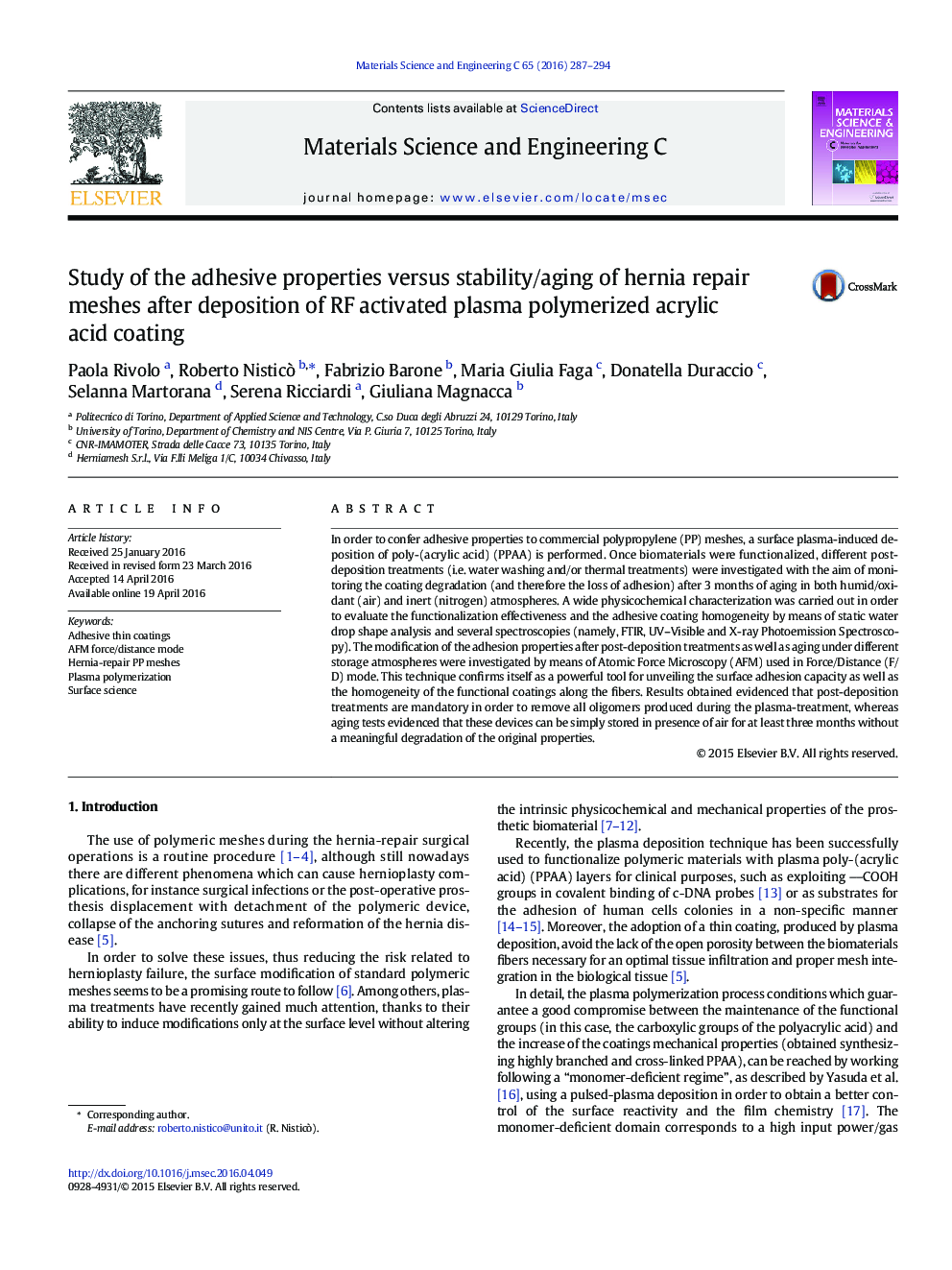| Article ID | Journal | Published Year | Pages | File Type |
|---|---|---|---|---|
| 7867241 | Materials Science and Engineering: C | 2016 | 8 Pages |
Abstract
In order to confer adhesive properties to commercial polypropylene (PP) meshes, a surface plasma-induced deposition of poly-(acrylic acid) (PPAA) is performed. Once biomaterials were functionalized, different post-deposition treatments (i.e. water washing and/or thermal treatments) were investigated with the aim of monitoring the coating degradation (and therefore the loss of adhesion) after 3Â months of aging in both humid/oxidant (air) and inert (nitrogen) atmospheres. A wide physicochemical characterization was carried out in order to evaluate the functionalization effectiveness and the adhesive coating homogeneity by means of static water drop shape analysis and several spectroscopies (namely, FTIR, UV-Visible and X-ray Photoemission Spectroscopy). The modification of the adhesion properties after post-deposition treatments as well as aging under different storage atmospheres were investigated by means of Atomic Force Microscopy (AFM) used in Force/Distance (F/D) mode. This technique confirms itself as a powerful tool for unveiling the surface adhesion capacity as well as the homogeneity of the functional coatings along the fibers. Results obtained evidenced that post-deposition treatments are mandatory in order to remove all oligomers produced during the plasma-treatment, whereas aging tests evidenced that these devices can be simply stored in presence of air for at least three months without a meaningful degradation of the original properties.
Keywords
Related Topics
Physical Sciences and Engineering
Materials Science
Biomaterials
Authors
Paola Rivolo, Roberto Nisticò, Fabrizio Barone, Maria Giulia Faga, Donatella Duraccio, Selanna Martorana, Serena Ricciardi, Giuliana Magnacca,
